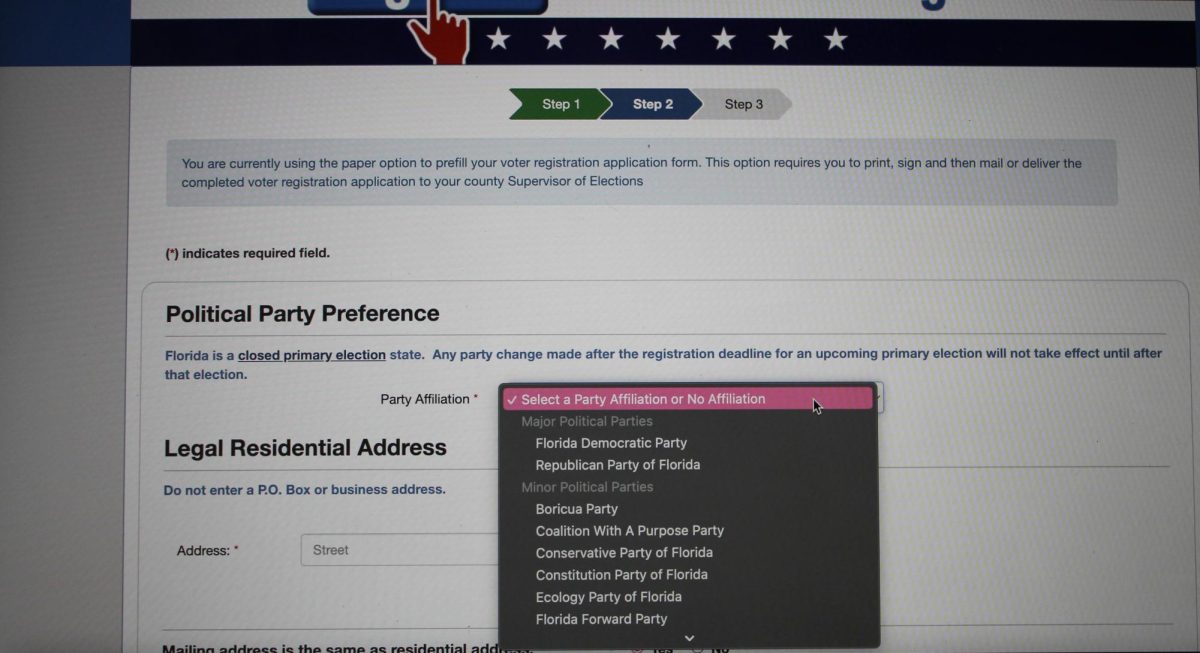This school year, students at Palmetto Middle School returned with one thing drastically different: not a single phone in sight. No one was texting their friends to meet up at lunch, no one was taking first-day-of-school selfies and no one was texting their parents that they were able to find their first class without getting lost. Using a “We see it, we take it” policy, the middle school requires all cell phones to stay in student’s bags during school hours. That includes lunch and free time. The recent May ban by Florida Gov. Ron DeSantis on phone use during “instruction time” took effect in July, with many schools deciding to take it a step further.
The Orange County Public School district, for example, similarly banned phone use for the entirety of the day. But, unlike Miami-Dade, this applied to high schoolers as well. A utopia without phones sounds nice, everyone chatting and no one scrolling — but the fact is, cell phones are an integral part of our society and there is no making them disappear without serious consequences.
Every day I get a text from my parents letting me know if I have to pick up my sister. If their meeting runs late or an emergency comes up, I can communicate with my family and plan around pick-ups. Just recently, my sister had to sneak around school simply to text me that she felt sick and ask me to get her early so she would not spread the flu to her friends. Neither of my parents would have been able to get away from work so quickly, and my Generation Alpha sister certainly does not know my number by heart. She already had to go to great lengths to communicate with me, and if on top of that I had not had my phone, she would have been feeling awful for the entire school day.
Before I could drive, a pivotal part of arranging my school pick-up was texting my parents about updates to club meetings. I have gotten club notifications about meeting dates while in school and needed to urgently relay them to my parents so they could pick me up accordingly. Without that ability, I would have missed out on so many events because I would not have been able to let my parents know.
Beyond simply pick-up times, phones have the power to allow students to be further involved in school. Our school’s @mpshactivities Instagram page conveys some of the most crucial information for school activities and events. Yet, Instagram is blocked by our school. Almost every school club, sport and organization has an Instagram account. So, what exactly are schools attempting to accomplish with a ban? A complete phone ban would be even more of an ineffective dead end. This very school’s newspaper staff communicates through WhatsApp, arranging, editing, posting and fixing all the emergencies and issues that come up so we can publish on time. This vital channel of communication for student organizations that use cell phones to communicate would be counterproductive if the goal is increasing productivity.
On a different note, in sensitive situations, the ability for students of all ages to communicate with a parent or guardian is one of the indispensable benefits of the cell phone. If a student is being bullied, facing a personal challenge or in a serious personal dilemma, they may not feel comfortable sharing it with a school administrator or teacher. This is where the ability for students to text parents would be essential for improving school safety and mental and physical well-being. Like it or not, the cell phone makes everyone more connected, and without it, students may feel alone.
Moreover, in case of emergencies on campus, students can use phones to communicate with parents the details of what is happening, so they can respond accordingly. This can even mean reducing panic on behalf of parents by letting them know what’s actually happening and telling them that you are safe.
From letting a parent know that you have forgotten your lunch to texting a friend about where to meet up to work on a group project, you cannot divorce the usefulness of a phone from the 21-century school environment.
If the goal is to foster attentive learning and meaningful connection, there are numerous, less blanket solutions to be implemented by schools, such as creating more school-day activities for bonding or promoting creative learning techniques in the classroom. Do not make the cell phone a red herring. For a teacher to not allow students to use phones in their classroom is one thing, but what I do in between classes and during my lunch is my own business.
Florida school districts are mistaken and are doing more harm than good in enacting a total phone ban.













